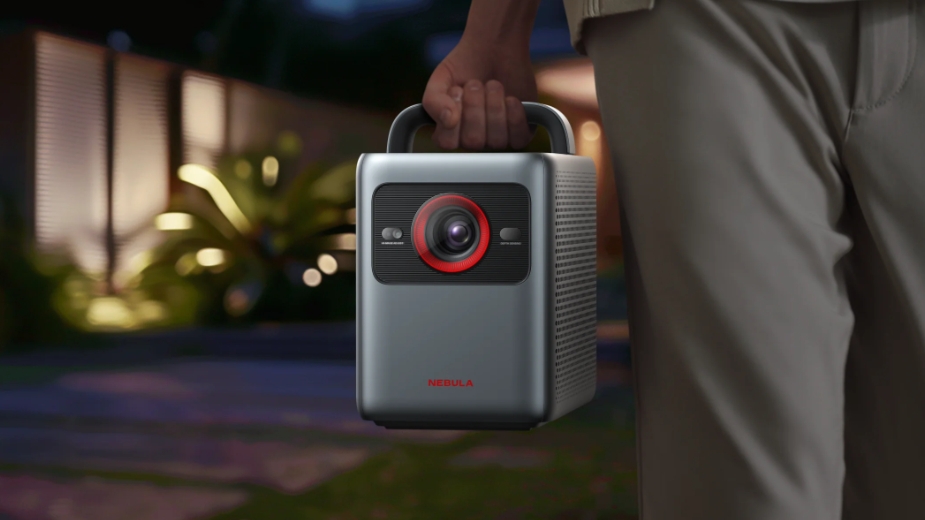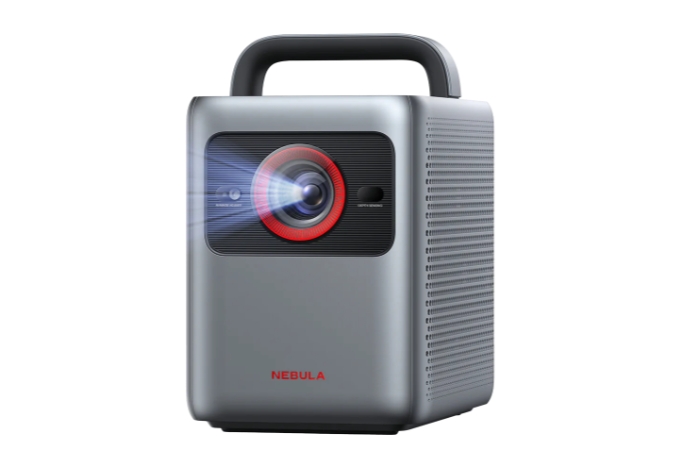How to Choose the Best Projector for Your Needs
by Miles Warren
October 24,2024
Choosing the best projector can transform your viewing experience, whether for home entertainment, business presentations, or educational purposes. Understanding the different types, features, and setup requirements will help you make an informed decision. This guide dives into the essentials of selecting a projector that fits your needs, providing insights into various models like the Nebula series. By the end of this comprehensive guide, you’ll be well-equipped to choose a projector that delivers exceptional performance tailored to your needs.

What Types of Projectors Are Available?
DLP vs. LCD: Which Is Right for You?
Projectors primarily use Digital Light Processing (DLP) or Liquid Crystal Display (LCD) technology. DLP projectors, such as the Nebula Capsule, offer high color accuracy and a sharp image using tiny mirrors to project light. They're typically more compact and have fewer maintenance issues. On the other hand, LCD projectors provide brighter images and better color saturation, making them suitable for well-lit environments. Both types have their advantages, so your choice should depend on your specific requirements, such as the intended use and ambient lighting conditions.
The Benefits of Laser Projectors
Laser projectors, like the Nebula Cosmos Laser 4K, utilize a laser light source, offering several benefits over traditional lamp-based projectors. They boast higher brightness, up to 2200 ANSI Lumens, superior color accuracy, and a longer lifespan. They also deliver instant on/off capabilities and require less maintenance. Laser projectors are perfect for those seeking the ultimate viewing experience with vivid visuals and sharp details, especially in 4K resolution.
Understanding Portable vs. Fixed Projectors
Portable projectors, such as Nebula Capsule 3 Laser, are compact and lightweight, perfect for on-the-go use like business trips or backyard movie nights. They often come with built-in batteries, like the 2.5-hour playtime on the Capsule 3, and versatile connectivity options. Fixed projectors, however, are designed for permanent installations and often provide higher performance and larger throw distances. Your choice should be based on mobility needs and the intended use environment.
What Features Should You Consider?
Brightness: Why ANSI Lumens Matter
Brightness, measured in ANSI Lumens, is a crucial factor. A higher lumen count means a brighter image, which is essential for viewing in well-lit environments. For instance, the Nebula Cosmos 4K SE offers 1800 ANSI Lumens, making it suitable for bright rooms. In contrast, for dimmer settings, a lower lumen projector like the Nebula Capsule with 100 ANSI Lumens can suffice. Always match the projector's brightness to your room's lighting conditions for the best experience.

Resolution: Choosing Between 720p, 1080p, and 4K
Resolution affects image clarity and detail. Lower-resolution projectors like the 720p Nebula Capsule Air might be adequate for casual viewing. For a more immersive experience, consider 1080p projectors like the Capsule 3 Laser, which offer full HD quality. For the highest clarity and detail, especially for large screens, 4K projectors like the Nebula Cosmos Laser 4K provide unparalleled visual performance, making every pixel pop with vibrant detail.
Connectivity Options: HDMI, USB, and Wireless
Modern projectors offer various connectivity options, enhancing their versatility. HDMI and USB ports are standard, allowing easy connection to laptops, gaming consoles, and USB drives. Wireless connectivity is also increasingly popular, with projectors like the Nebula series offering Wi-Fi and Bluetooth capabilities. Consider your connectivity needs, such as streaming from online platforms or connecting multiple devices, when choosing a projector.
How to Determine Your Ideal Setup?
Measuring Throw Distance and Screen Size
The throw distance, or the distance between the projector and the screen, largely determines the screen size. Portable projectors like the Nebula Capsule 3 Laser should project within a specific range to achieve their maximum screen size, up to 120 inches. Fixed projectors generally offer more flexibility with throw distances, so measure your room and calculate the appropriate distance to ensure a perfect fit for your screen size needs.
Room Conditions: Light Control and Setup
Room conditions significantly impact projector performance. Consider light control, such as blackout curtains, to enhance image visibility, especially for lower-lumen projectors. The Nebula Capsule with 100 ANSI Lumens works best in darker rooms, while the Cosmos Laser 4K with 2200 ANSI Lumens can handle more ambient light. Proper setup, including mounting options and cable management, also contributes to an optimal viewing experience.
Best Screen Types for Different Projectors
Choosing the right screen type enhances your projector's performance. Matte white screens are versatile and work well with most projectors. For high ambient light environments, consider high-gain screens that amplify brightness. Fixed projectors like the Nebula Cosmos 4K benefit from high-quality screens to fully utilize their 4K capabilities. Portable projectors can often be used with portable screens or even blank walls for convenience.
Conclusion
Selecting the best projector involves understanding your specific needs, from the type of projector and key features to the ideal setup. Models like the Nebula series offer a range of options, from portable and compact designs to high-performance 4K models. Focus on factors such as brightness, resolution, connectivity, throw distance, and room conditions. By following this comprehensive guide, you can make an informed decision that delivers the best viewing experience tailored to your preferences.
